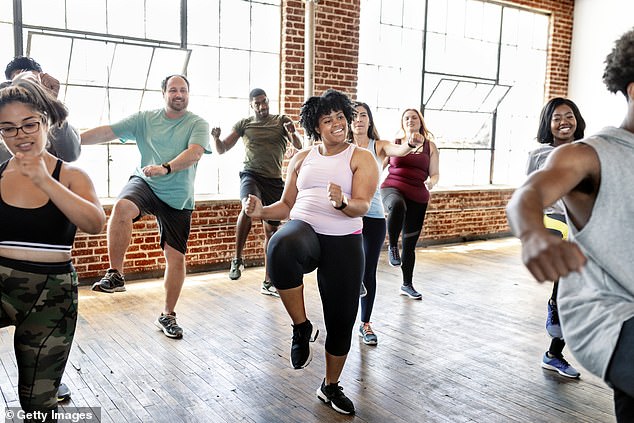Many of us are familiar with the discomfort of sore muscles the next day after intense physical activity.
However, researchers have found that the advantages for the brain can still be experienced the following day.
University College
London
Researchers from UCL discovered that the temporary cognitive enhancement our brain experiences after exercising continues all through the next day.
Individuals who engaged in a higher amount of moderate to intense physical exercise compared to their typical routine performed better on memory assessments the following day.
Specialists mentioned that these enhancements might be accomplished through a straightforward activity like sprinting upstairs.
In the short term, exercise increases blood flow to the brain and stimulates the release of neurotransmitters such as norepinephrine and dopamine which help a range of cognitive functions.
These neurochemical alterations are known to persist for several hours following physical activity.
Other research has indicated that exercise-related brain states persist longer, with findings pointing out that physical activity can improve your mood for as much as one day.
Individuals between the ages of 50 and 83 participated by wearing activity monitors for eight days and underwent daily cognitive assessments.


Researchers examined the duration of time participants spent sitting, engaging in mild exercise, and undertaking moderately intense or strenuous activities.
They also measured the amount of sleep and the time allocated to lighter stages (such as rapid eye movement, or REM) sleep and more profound, slow-wave sleep.
When considering typical daily activities and rest periods, the study revealed that engaging in a higher level of moderate or intense exercise than usual was associated with improved working memory and episodic memory (event recall) the following day.
These advantages were also experienced by individuals who sat for shorter periods and slept for six hours or more.
More sleep overall was linked to improved episodic and working memory and psychomotor speed, a measure of how quickly a person detects and responds to the environment.

According to the research published in the International Journal of Behavioral Nutrition and Physical Activity, individuals who experienced more deep, restorative slow-wave sleep exhibited improved episodic memory.
On the contrary, spending more time being inactive than normal was associated with a decline in working memory the following day.
Dr. Mikaela Bloomberg from UCL commented, “Our research indicates that the positive impact of physical activity on short-term memory might extend over a longer period than we initially believed, potentially up until the following day rather than merely for several hours post-exercise. Increasing one’s amount of sleep, specifically deep sleep, appears to enhance this memory boost.”
‘Moderate or intense physical activity includes anything that elevates your heartbeat – for instance, quick-paced walking, dancing, or climbing several staircases. This does not necessarily require organized workouts.’
‘This was a limited study, so it must be repeated with a bigger participant group to ensure the reliability of the findings.’
Read more





